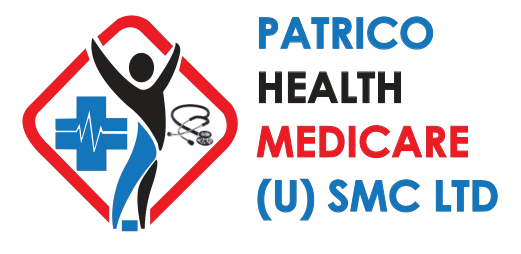The Importance of Regular Health Check-ups in Home Nursing Care
realakram20@gmail.com
October 28, 2024

Regular health check-ups in home nursing care are not just routine appointments; they are vital for ensuring your loved ones receive the best possible support and attention. Imagine knowing that a simple visit can help catch potential health issues before they escalate. This proactive approach not only fosters a sense of security for families but also empowers patients by keeping them engaged in their health journey. By embracing regular check-ups, you’re investing in a higher quality of life for those you care about, allowing them to thrive in the comfort of their own homes. Let’s explore why these check-ups before your next suture techiniques and how they can make a meaningful difference in-home nursing care.
Understanding the Role of Health Check-ups in Home Nursing Care
Regular health check-ups are a cornerstone of effective home nursing care. These assessments go beyond just measuring vital signs; they offer a comprehensive view of a patient’s health and well-being. In a home setting, check-ups provide a personalized approach that is often missing in traditional hospital visits.
During these visits, nurses can evaluate how a patient is responding to treatments, monitor chronic conditions, and identify any new health concerns. This ongoing assessment is crucial because it allows for adjustments to care plans based on the patient’s evolving needs. It’s like having a health coach in your corner, guiding you toward better outcomes.
Moreover, these check-ups foster a strong relationship between the patient and the caregiver. Patients feel more at ease discussing their concerns and symptoms in a familiar environment, leading to more open and honest communication. This connection enhances trust and can significantly impact a patient’s willingness to adhere to their treatment plans.
In essence, regular health check-ups in-home nursing care are essential for not only maintaining health but also for nurturing a supportive and responsive caregiving environment. They ensure that patients receive tailored care that evolves with their needs, ultimately promoting a better quality of life.
Key Benefits of Regular Health Check-ups in Home Care
Regular health check-ups in home care bring a wealth of benefits that enhance the overall well-being of patients. Here are some of the key advantages:
Early Detection and Prevention
Regular check-ups enable healthcare providers to identify potential health issues before they become serious. Catching problems early can lead to more effective treatments and a better prognosis, allowing patients to maintain their quality of life.
Personalized Care Plans
Every patient is unique, and regular assessments allow nurses to tailor care plans based on individual health needs. This personalized approach ensures that treatment strategies are effective and relevant, adapting as conditions change over time.
Enhanced Reassurance for Patients and Families
Regular check-ups provide peace of mind for both patients and their families. Knowing that a healthcare professional is closely monitoring health can alleviate anxiety and foster a sense of security, allowing everyone to focus on living life to the fullest.
Reduced Hospitalizations and Emergency Visits
Consistent monitoring through regular check-ups can significantly decrease the likelihood of emergencies and hospital admissions. By addressing health concerns early, caregivers can manage conditions effectively, preventing complications that often lead to urgent care situations.
Empowered Patients
Regular check-ups encourage patients to take an active role in their health care. By being informed and involved in their assessments, patients become more engaged, leading to better adherence to treatment plans and healthier lifestyle choices.
In summary, regular health check-ups in-home care are not just beneficial; they are essential. They promote proactive health management, build trust between patients and caregivers, and ultimately lead to healthier, happier lives.
Essential Health Check-up Components for Home Care
When it comes to regular health check-ups in home care, several key components ensure comprehensive and effective assessments. Here’s what to expect during these important visits:
Vital Signs Monitoring
Vital signs are the body’s critical indicators of health. Nurses will typically check blood pressure, heart rate, temperature, and respiratory rate. These measurements provide essential information about the patient’s current health status and help identify any immediate concerns.
Medication Management and Review
A thorough review of medications is crucial. This includes checking for adherence, evaluating the effectiveness of current treatments, and identifying any potential side effects or interactions. By ensuring that medications are appropriate and well-managed, nurses can enhance patient safety and optimize health outcomes.
Mobility and Cognitive Assessments
Assessing a patient’s mobility and cognitive function is vital for understanding their overall well-being. Nurses will evaluate physical abilities, balance, and coordination, as well as cognitive skills such as memory and orientation. This information helps identify areas where additional support or intervention may be needed.
Nutritional Assessments
Nutrition plays a significant role in health, especially for those in home care. During check-ups, nurses will assess dietary habits, hydration levels, and weight changes. They may offer guidance on balanced eating and hydration to promote optimal health and prevent complications.
These essential components create a holistic view of a patient’s health, enabling caregivers to make informed decisions and adjustments to care plans. Regular check-ups that incorporate these elements not only support patients’ physical well-being but also enhance their quality of life at home.
How Regular Check-ups Improve Patient Outcomes in Home Care
Regular check-ups in home care play a crucial role in enhancing patient outcomes. Here’s how these proactive assessments make a significant difference:
Timely Interventions
Frequent health check-ups allow healthcare providers to identify and address issues before they escalate. By spotting potential problems early, nurses can implement interventions that prevent complications, leading to quicker recoveries and better overall health.
Better Chronic Disease Management
For patients with chronic conditions like diabetes or heart disease, regular monitoring is essential. Check-ups enable healthcare professionals to adjust treatment plans based on the patient’s current status, ensuring that management strategies remain effective. This personalized approach can lead to improved health metrics and a better quality of life.
Increased Patient Engagement
Regular interactions during check-ups foster a sense of involvement for patients in their own care. When patients are actively engaged in discussions about their health, they are more likely to adhere to treatment plans and make healthier lifestyle choices. This empowerment leads to better health outcomes and greater satisfaction with care.
Enhanced Communication
Ongoing check-ups establish a strong line of communication between patients, families, and healthcare providers. This collaboration allows for open discussions about concerns, preferences, and progress, ensuring that everyone is on the same page. Improved communication reduces misunderstandings and helps tailor care to individual needs.
Reduction in Emergency Situations
By consistently monitoring health, regular check-ups significantly reduce the likelihood of emergencies. Proactive care means that small issues can be addressed before they turn into crises, ultimately leading to fewer hospital visits and a smoother recovery process.
In summary, regular health check-ups in home care are a vital investment in patient outcomes. They provide timely interventions, support chronic disease management, engage patients, foster communication, and minimize emergencies. This holistic approach not only enhances health but also promotes a better quality of life for patients and their families.
Tips for Families and Caregivers: Maximizing Health Check-up Benefits
To get the most out of regular health check-ups in home care, families and caregivers can take proactive steps that enhance the effectiveness of these visits. Here are some practical tips:
Prepare Questions in Advance
Before the check-up, take some time to jot down any questions or concerns. This could include inquiries about medications, new symptoms, or changes in behavior. Having these questions ready ensures that you address important topics during the visit, making the most of the caregiver’s time.
Keep Accurate Health Records
Maintain a comprehensive health record for the patient, including past medical history, current medications, allergies, and recent health changes. This information is invaluable during check-ups, as it helps nurses make informed decisions and provides a clearer picture of the patient’s health journey.
Communicate Changes Promptly
If you notice any changes in the patient’s health—whether physical, emotional, or cognitive—communicate these to the nurse before the check-up. Early reporting allows for timely assessments and necessary adjustments to care plans, improving overall health outcomes.
Engage the Patient in Their Care
Encourage the patient to participate actively in their health discussions. When patients feel involved in their care, they are more likely to express their concerns and preferences, leading to a more tailored and effective care experience.
Utilize Technology
Take advantage of health apps or tools to track health metrics, medication schedules, and appointments. This can help keep everyone organized and ensure that important information is readily available during check-ups.
Follow Up After Check-ups
After each check-up, review the nurse’s recommendations and follow through with any suggested changes. This could include adjustments to medication, lifestyle changes, or additional follow-up appointments. Consistent follow-up helps maintain continuity of care and supports the patient’s ongoing health needs.
By implementing these tips, families and caregivers can maximize the benefits of regular health check-ups, fostering a supportive environment that promotes the well-being of patients in home care. Together, you can create a proactive health management plan that enhances quality of life and ensures the best possible outcomes.
Conclusion
Regular health check-ups in home nursing care are essential for ensuring the well-being of your loved ones. These assessments not only promote early detection of health issues but also allow for personalized care tailored to individual needs. By fostering open communication, engaging patients in their own health management, and providing timely interventions, regular check-ups can significantly improve health outcomes and quality of life.
Embracing these proactive measures can help families and caregivers create a supportive environment where patients feel valued and empowered. Remember, prioritizing regular health check-ups is an investment in health that pays off in peace of mind and enhanced well-being. Let’s make these check-ups a cornerstone of home care, ensuring our loved ones receive the best support possible.
24 Hours Emergency Call
Medical emergency? We’re here for you 24/7. We respond quickly to every call.



